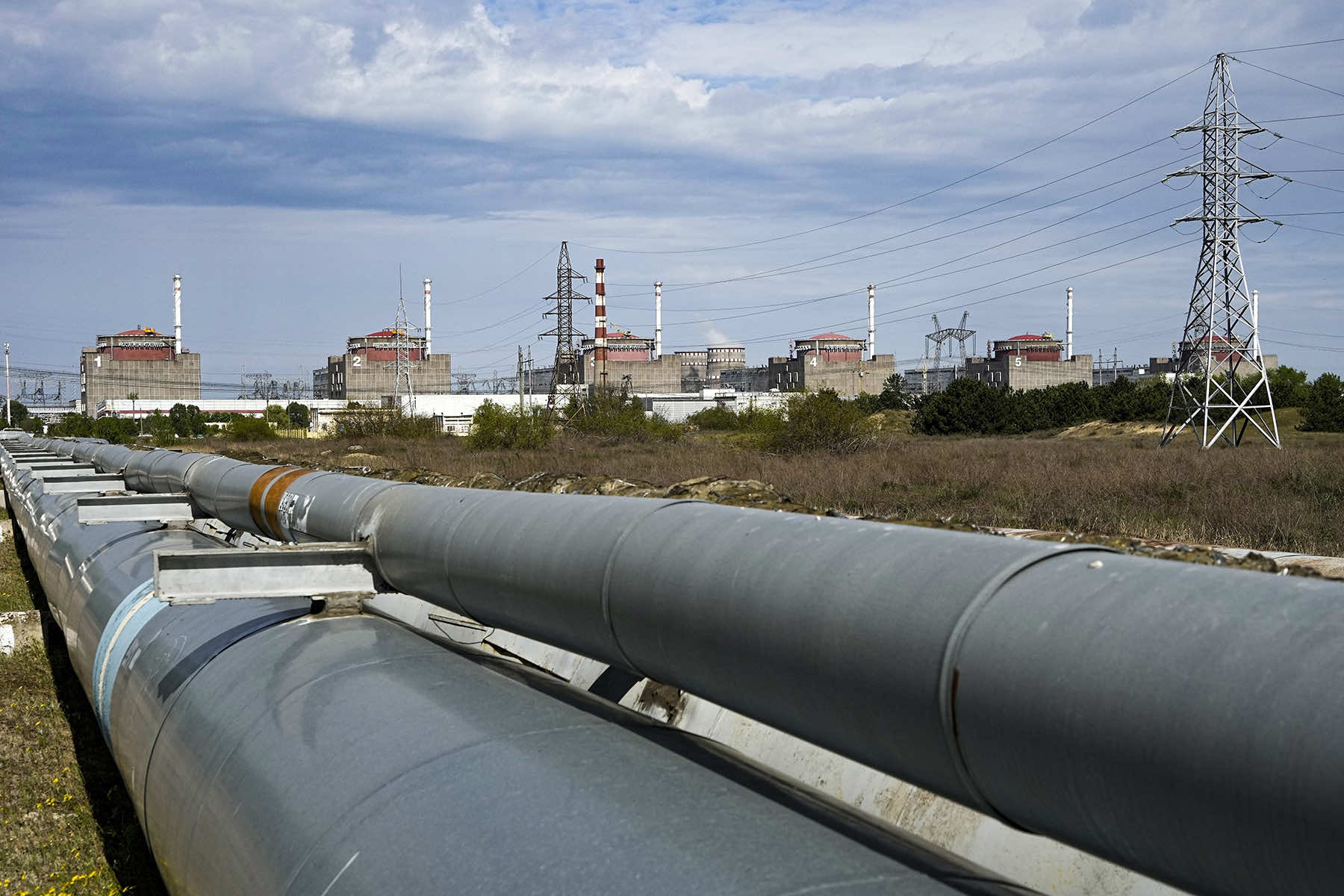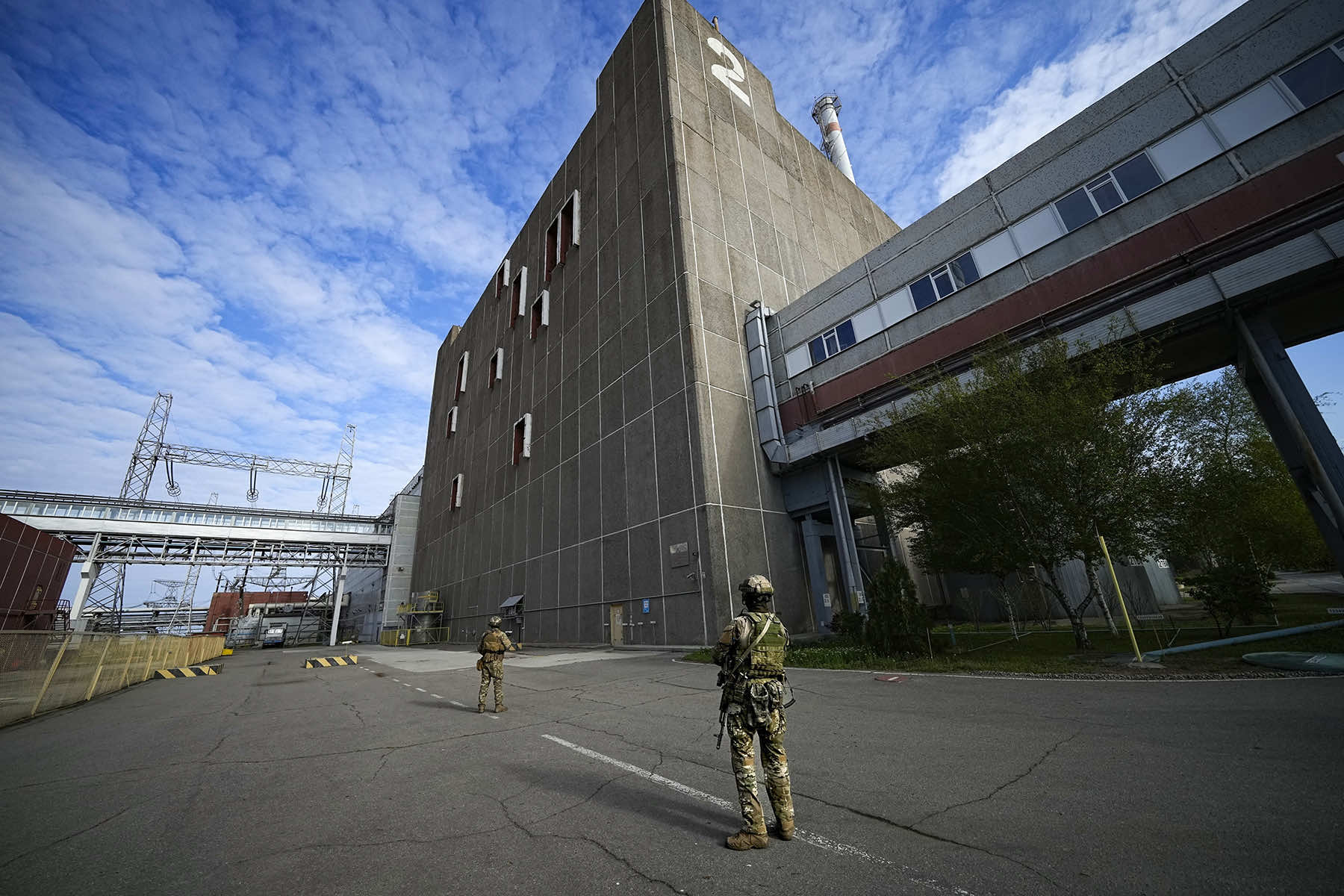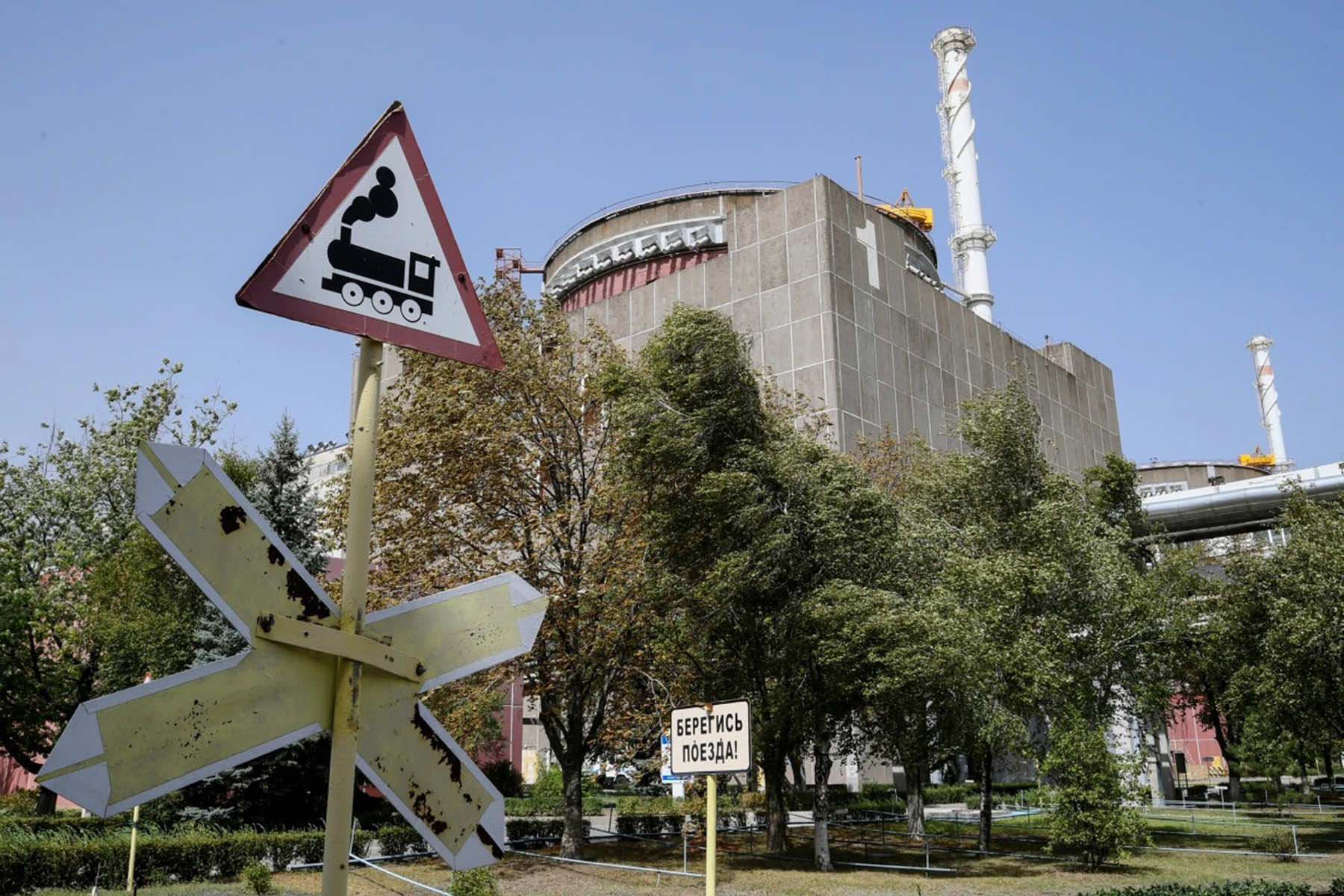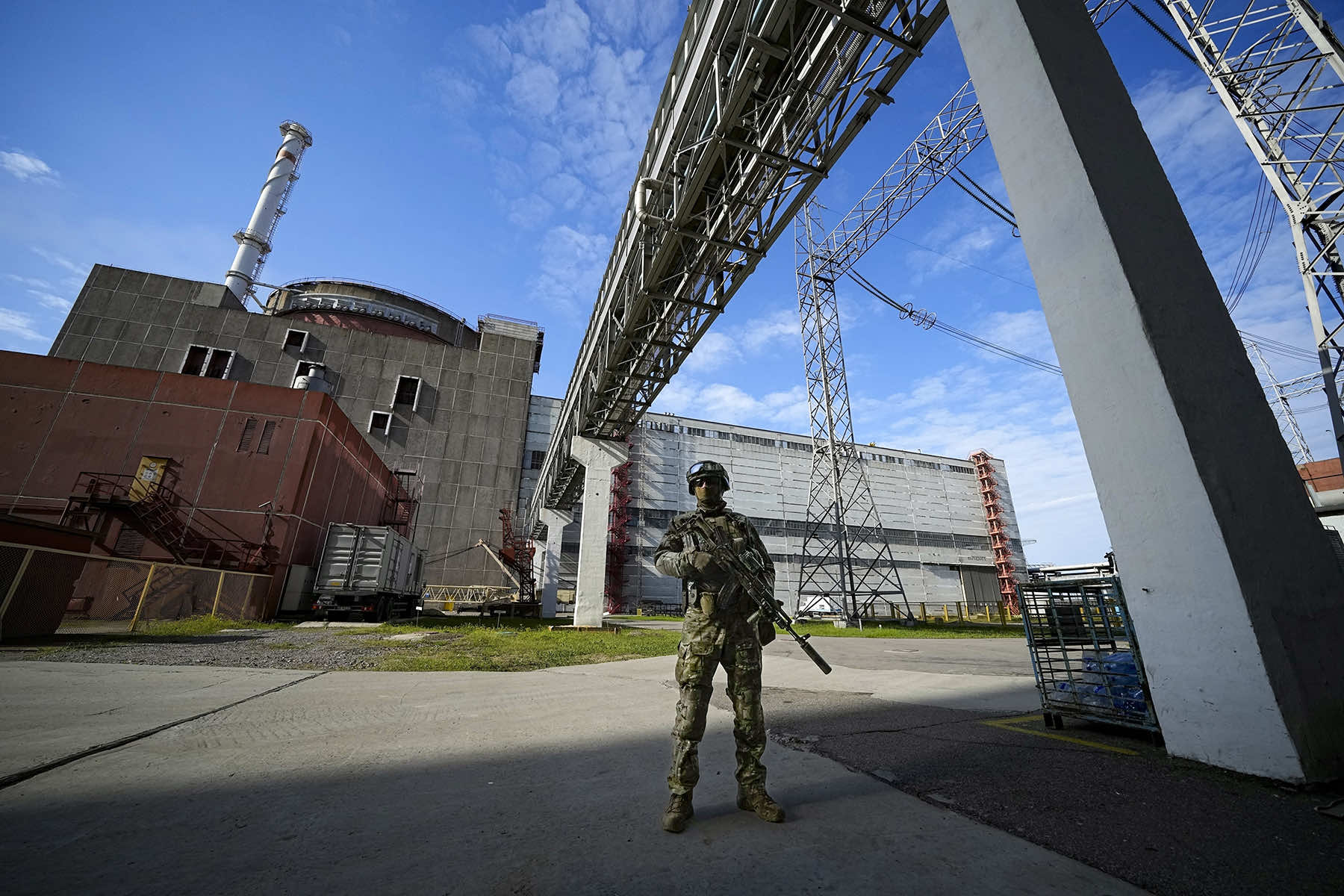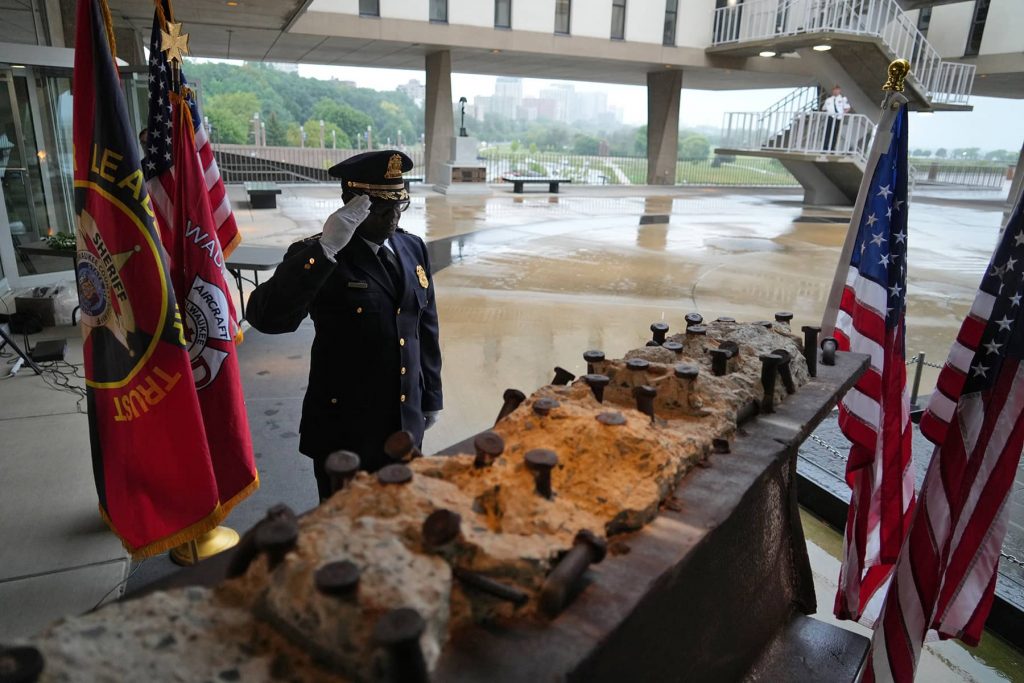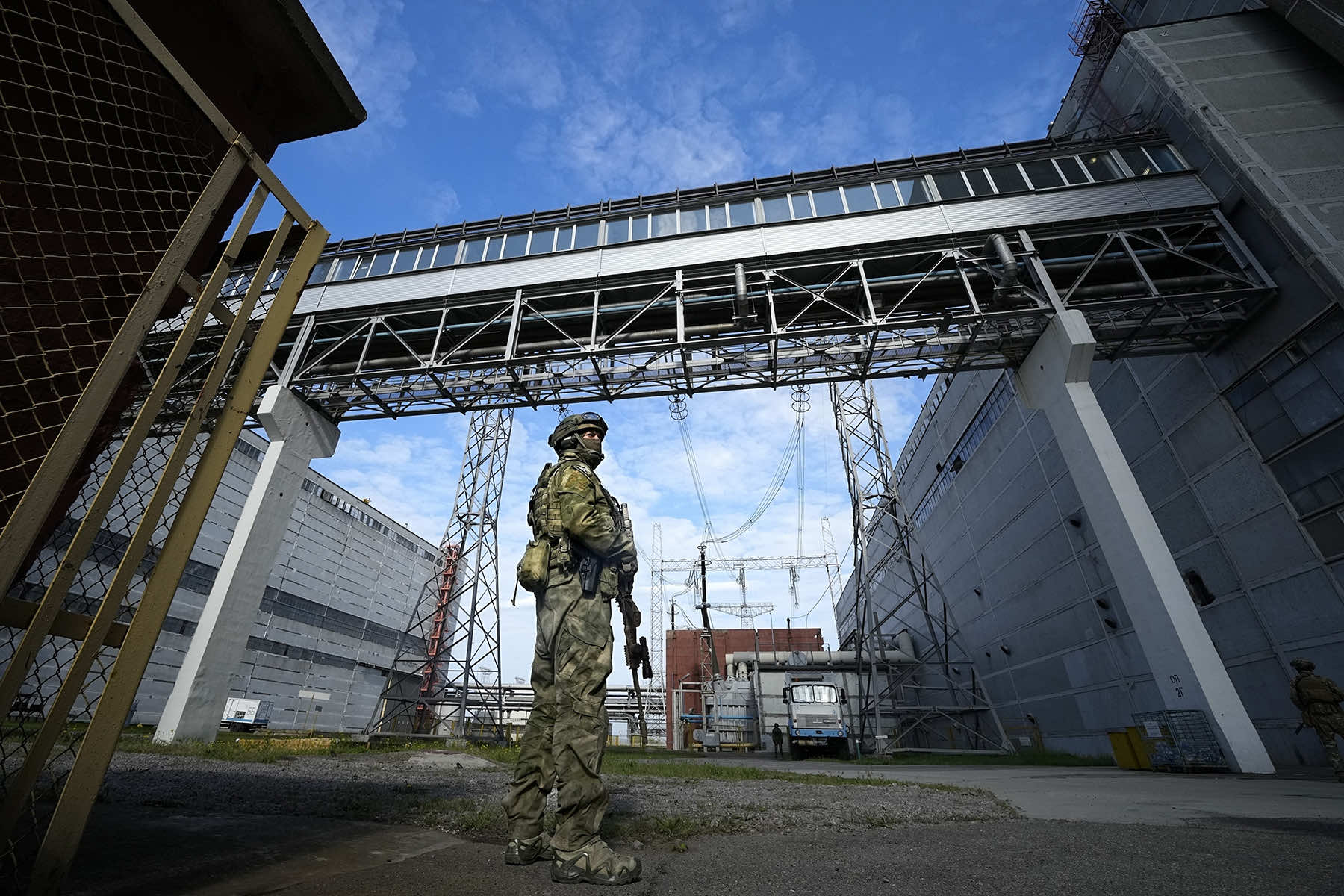
The head of the United Nations’ nuclear watchdog has expressing growing anxiety about the safety of the Zaporizhzhia Nuclear Power Plant, after the governor of the Russia-occupied area ordered the evacuation of a town where most plant staff live amid ongoing attacks around the area in early May.
The plant is near the front lines of fighting, and Ukrainian authorities on May 7 said that a 72-year-old woman was killed and three others were wounded when Russian forces fired more than 30 shells at Nikopol, a Ukrainian-held town neighboring the plant.
“The general situation in the area near the Zaporizhzhya Nuclear Power Plant is becoming increasingly unpredictable and potentially dangerous,” International Atomic Energy Agency head Rafael Grossi said in a warning that came before the latest report of attacks.
“I’m extremely concerned about the very real nuclear safety and security risks facing the plant.”
Grossi’s comments were prompted by an announcement by Yevgeny Balitsky, the Russian-installed governor of the partially-occupied Zaporizhzhia province, that he had ordered the evacuation of civilians from 18 settlements in the area, including Enerhodar, which is located next to the power plant, which is Europe’s largest.
The settlements affected are about 30 to 40 miles from the front line of fighting between Ukraine and Russia, and Balitsky said that Ukraine had intensified attacks on the area in the past several days.
The region is also widely seen as a likely area where Ukraine may focus its anticipated spring counteroffensive.
The Ukrainian General Staff said that the evacuation of Enerhodar had already begun.
According to an update posted on Facebook, the General Staff said the first residents evacuated were those who took Russian citizenship following the capture of the town by Moscow early in the war.
They were being taken to the Russia-occupied Azov Sea coast, about 120 miles to the southeast.
Grossi said that operating staff of the nuclear power plant, whose six reactors are currently all in shutdown mode, had not been evacuated but that most live in Enerhodar and the situation has contributed to “increasingly tense, stressful and challenging conditions for personnel and their families.”
He added that IAEA experts at the nuclear site “are continuing to hear shelling on a regular basis.”
“We must act now to prevent the threat of a severe nuclear accident and its associated consequence for the population and the environment,” Grossi said. “This major nuclear facility must be protected. I will continue to press for a commitment by all sides to achieve this vital objective.”

